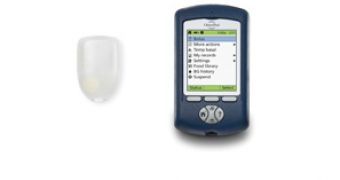There has been a lot of buzz lately around the vulnerabilities that expose wireless medical devices to cybercriminals, but researchers from Princeton and Purdue universities may have found a solution to these issues. They have created a firewall that's specially designed for these types of apparatus.
The firewall, dubbed MedMon, is only a prototype, but initial tests have demonstrated that it’s highly effective when it comes to protecting insulin pumps, pacemakers and even the brain implants on which so many people currently rely.
The research team is composed of Anand Raghunathan, professor of electrical and computer engineering at Perdue, Niraj K. Jha, a Princeton professor of electrical engineering, and two graduate students in electrical engineering from the same university, Chunxiao Li and Meng Zhang.
“You could imagine all sorts of scary possibilities. What motivated us to work on this problem was the ease with which we were able to break into wireless medical systems,” Raghunathan said.
One of the advantages of the new security system is that it can function with existing devices.
“This could be worn as a necklace, or it could be integrated into your cell phone, for example,” he explained.
The experts have developed MedMon because, even though the risks of a breach are low, when it comes to medical devices, every small incident could have a fatal outcome.
The firewall relies on “multi-layered anomaly detection” to look for signs of potentially malicious activity and when a hazardous situation is detected, MedMon can block the ill-intended packets and notify the user.
While the system isn’t completely bulletproof, it’s a great step forward and its creators are confident that in certain situations it could be highly effective.
“This is still not going to solve privacy concerns. Someone could still learn that you have a medical device, but hopefully they are not going to be able to do anything bad to you. It is extremely difficult to make a system completely impregnable,” Raghunathan added.

 14 DAY TRIAL //
14 DAY TRIAL //